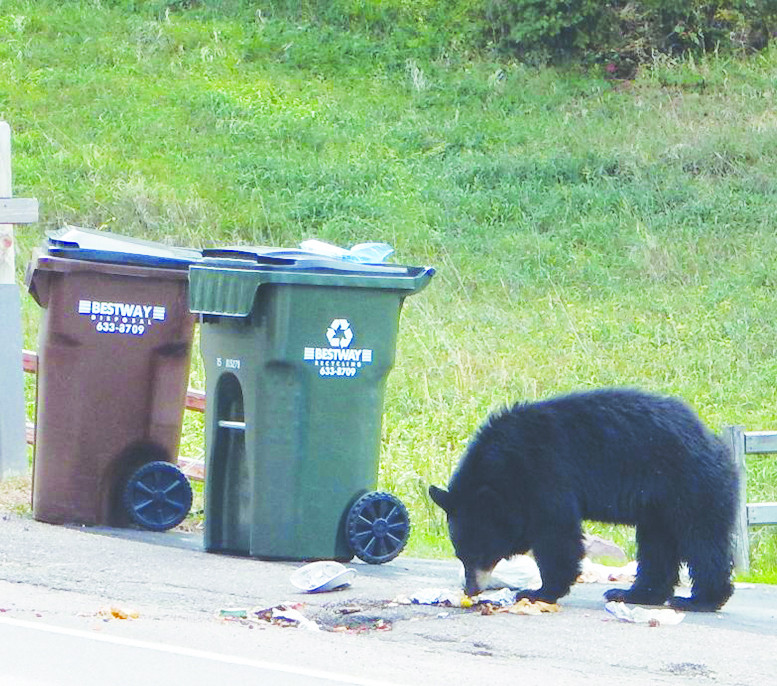The ‘bear’ necessities when living with wildlife

SOUTH FORK- Throughout this past summer communities like South Fork and Creede have been dealing with a large number of bears coming to the area to forage for food.
Colorado Parks and Wildlife (CPW) South Fork District Wildlife Manager Jeremy Gallegos had this to say, “This year has been busier with black bear conflicts. I believe the cause is the extreme drought conditions we are experiencing, as well as the late frost that damaged or killed many of the plants that bears feed on when they emerge from their dens. When we have conditions like this, bears naturally move down into the riparian corridors (rivers and streams) looking for available food sources. These are the same areas that people like to live, too, creating the right environment for human conflicts with bears.”
The South Fork area has been a busy place over the last several months with campgrounds and RV parks filling up earlier than normal. Some reports indicate that the reason for the influx of guests to the area is a result of COVID-19 and many people being out of work or working remotely. With the rise in people, also came a rise in trash and other enticing sources of food that can attract bears.
Gallegos continued to state, “When people don’t store their trash responsibly in bear country, it is probably the most common conflict that wildlife officers get calls on. Many people in South Fork are “Bear Aware” and do the right thing by storing their trash dumpster in a garage or shed and only wheeling it out on the morning of pickup; however there are some that don’t and cause the nuisance bear issues. Don’t wait until the bear gets in your trash before you begin to store it responsibly.”
“The Town of South Fork does have a trash ordinance that requires individuals to take remedial actions to avoid feeding bears by securing their trash and other food attractants. This is a tremendous help, along with the state statute that I can enforce. I do have conversations with the town when an ongoing problem location is identified. Typically, this happens after I have been called to the same residence or business on multiple occasions and the situation is not being resolved. The town does not require bear resistant trash containers at this point, however that may need to be considered in the future.”
Gallegos finished stating, “There is a wealth of information on CPW’s website, www.cpw.state.co.us, with tips and information on avoiding conflicts with bears, and I highly recommend people checking it out. Simply, do what you can to avoid having the food attractants out and available for bears. This means storing your trash responsibly, taking down bird feeders every evening, clean your grill after each use, and certainly don’t feed them. If a bear strikes out at getting something to eat at your house, it has to move on. They simply can’t afford to be in places where they are not finding things to eat. Also, make sure you shut and lock your windows and doors at night or when you leave your residence.
An open window or door is an invitation to a bear, and certainly not the guest you want to have in your house. Fortunately, we haven’t had that happen in town this year, but it certainly could if a house is left unsecure. We all just need to do our part to keep bears wild.”



